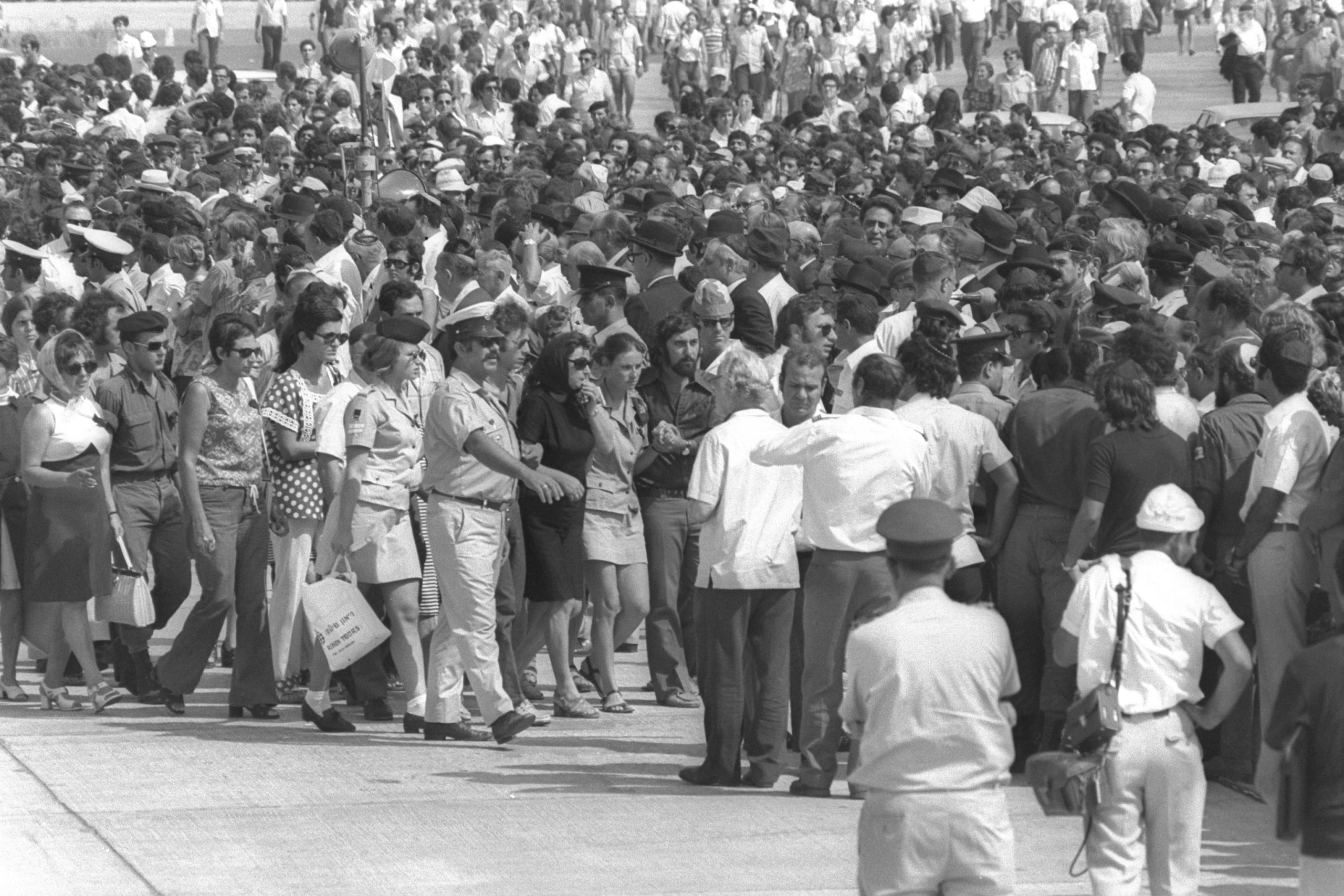![]() Donald H. Harrison
Donald H. Harrison
SAN DIEGO – ESPN and ESPN+ will premiere at 4:30 p.m. Pacific time, Tuesday, Sept 20, The Survivor, an hour-long documentary on the murder of 11 Israeli athletes during the 1972 Olympics. Reporter Jeremy Schaap interviews Shaul Ladany, a teammate of the slain athletes, who has been dubbed an “ultimate survivor.” Along with his family, he had earlier in his life survived the Holocaust.
Additional interviews with Holocaust historian Deborah Lipstadt and Ladany’s Israeli teammate Zelig Shtroch round out the program, which concludes with footage from the 50th anniversary memorial service for the Israeli athletes that was held in Munich earlier this month.
Ladany competed in the 50-mile race walking event, coming in 19th prior to the massacre that horrified the world on September 5, 1972. Shtorch had been scheduled to compete in a target shooting competition. The names of the slain Israeli athletes should be remembered: David Berger, Seew Friedman, Josef Gutfreund, Elieser Halfin, Josef Romano, Amizur Shapira, Kehat Shorr, Mark Slavin, Andre Spitzer, Jaakow Springer and Mosche Weinberger.
Two of the athletes were killed at the Olympic village. The other nine were slain by the terrorists at the Ferstenfeldbruck airfield, from which the terrorists had demanded to be flown to Cairo along with their hostages. Bound together in a helicopter that had airlifted them from the Olympic village to the airfield, some hostages died when the helicopter was blown up; others died by gunfire.
In a shootout, five terrorists and one German policeman also were killed. For Israelis, it was a time of immeasurable loss that came only 24 years after the nation was founded. For Germans, it recalled their history with Nazis perpetrating the Holocaust, which they had tried hard to put behind them. Billed in advance as the “serene Olympics,” the 1972 Games had been programmed by the host nation to stand in marked contrast to the 1936 Olympics at which Adolf Hitler arrogantly had shown off Nazi might.
Israel’s athletes had been housed together at the Olympic Village. In the early morning hours, the terrorists, brandishing guns and hand grenades, captured the athletes in Room 1 and Room 3, but for some unknown reason skipped Room 2 where Ladany, Stroch and three others were housed. The survivors heard the gunshots that killed the first two athletes but didn’t comprehend what was happening until it was too late.
There was a memorial service at the Olympic Stadium the day after the massacre, with Avery Brundage, then president of the International Olympic Committee declaring, “The Games must go on.” Not so for the remnants of the Israeli team; they flew home, accompanying the coffins of their murdered teammates. Ladany thought it was a mistake to withdraw from the Games completely; he thought the team should have carried the Israeli flag, garbed in mourning, at the closing ceremonies.
Asked if he cried over the death of his teammates, Ladany told reporter Schaap that he hadn’t been able to cry since the Holocaust, that he keeps his sorrow on the inside. On the 50th anniversary of the massacre earlier this month, Ladany, now 86, attended the ceremonies with a granddaughter, and offered this bit of life wisdom: “Be optimistic. Don’t let bad memories rule you.”
He was born in Belgrade, Yugoslavia (today Serbia) and when the Nazis invaded that country, his family escaped to Hungary, where they lived until 1944 when Nazis sent most Jews to ghettos, and from there to the Auschwitz death camp. The Ladany family was in a group of nearly 1,700 Jews sent instead to Bergen-Belsen on the Kasztner train in return for a ransom of jewels and money paid by Rezso Kasztner, head of the Budapest Aid and Rescue Committee, to Holocaust architect and mastermind Adolf Eichmann.
Pending completion of the deal, the Ladany family was interned for five months at Bergen Belsen, where they nearly starved to death. Afterwards, the Kasztner Jews traveled on to neutral Switzerland where they waited out the rest of World War II. The family subsequently moved to Israel because, in Ladany’s words, “My parents were fed up with Europe, fed up because of the Holocaust.”
Still competing in race walks to this day, Ladany estimates that he has logged over 450,000 miles in competitions and training. Asked what a race walker needs to have, he answered, “Good teeth – so when you feel the pain you can grind your teeth.”
Normally, when you think of ESPN, you think of that network’s superb coverage of athletic events. In this case, in collaboration with the E60 group, it is providing viewers with an excellent understanding of a tragic episode in the history of sports.
*
Donald H. Harrison is editor emeritus of San Diego Jewish World. He may be contacted via donald.harrison@sdjewishworld.com


























